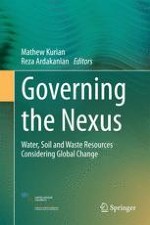2015 | OriginalPaper | Buchkapitel
7. Applications of Life-Cycle Cost Analysis in Water and Wastewater Projects: Lessons from European Experience
verfasst von : Georg Schiller, Stefan Dirlich
Erschienen in: Governing the Nexus
Aktivieren Sie unsere intelligente Suche, um passende Fachinhalte oder Patente zu finden.
Wählen Sie Textabschnitte aus um mit Künstlicher Intelligenz passenden Patente zu finden. powered by
Markieren Sie Textabschnitte, um KI-gestützt weitere passende Inhalte zu finden. powered by
